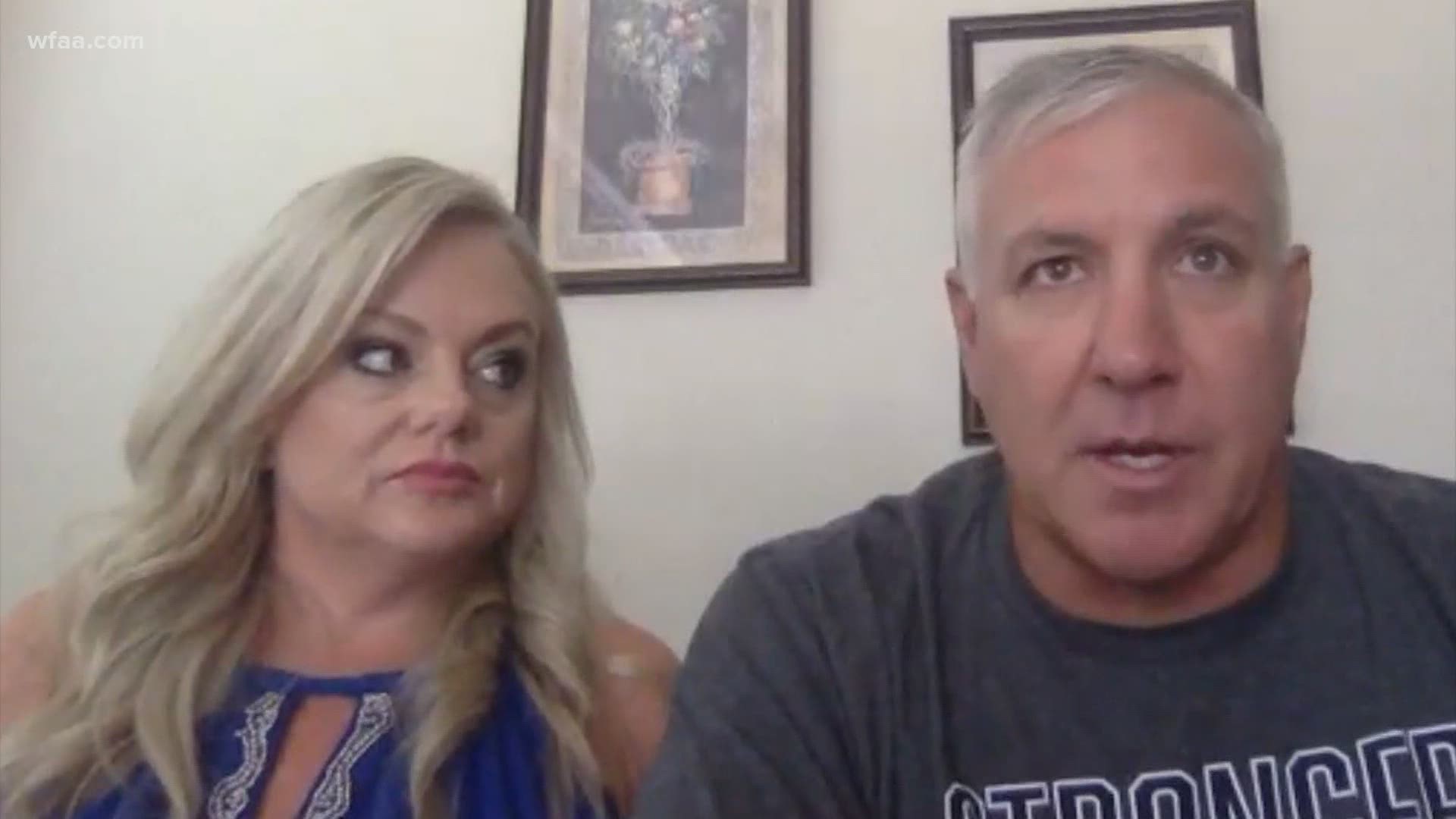Looking at the reported number of COVID-19 recoveries in a North Texas county isn't always a reliable statistic, especially for the people who have had COVID-19 and are still fighting certain illnesses.
Will Horn from Fort Worth knows this feeling. He got COVID-19 in mid-March and still is having issues today.
"I literally still have pain in my joints," Horn said. "I still don't have all of my lung capacity back."
Horn also remembers still having a fever for a week after leaving the hospital. He eventually went to a psychiatrist for anti-anxiety medicine.
"The physical and the mental anguish takes a long time to subside," Horn said.
Horn also received a medical report more than a month after going home. It includes the line "At this time, it is unknown for how long antibodies persist following infection and if the presence of antibodies confers protective immunity."
Essentially, Horn says he didn't know if he could contract the virus a second time.
"It's almost like the boogieman is always behind you wondering if this will ever happen again," Horn said.
Shawn Cook also had the COVID-19 virus in March, staying in a Rockwall hospital for 20 days and on a ventilator for 15 days.
He calls the recovery process a "rollercoaster" as he had to learn to walk again because he lost so much muscle mass in the hospital.
Cook eventually donated his plasma and has even gotten in better shape. However, he is still taking two different types of blood pressure medicine every day.
"The doctors say I may never be off blood medication," Cook said.
The recovery rate is a complicated term, according to President of the Dallas County Medical Society Dr. Mark Casanova.
"The legitimate question is what exactly is that?" Casanova said. "The honest answer is I'm not even sure what recovery rate really is."
Casanova says to be labeled as recovered doesn't mean it's a quick return to work or life. Like Horn and Cook, many people have medical issues that linger well beyond their positive test results.
"Even for some individuals, immunity is waning, which means they're at risk for acquiring COVID-19 again," Casanova said.
The state's COVID-19 cases and fatalities are confirmed. Recoveries are estimates, based on scientific research for the average amount of time it takes someone to no longer have the virus in their system.
"It's a statistical calculation based on when we get the information about those cases," Spokesman of Texas Department of State Health Services Chris Van Deusen said.
Horn is one of these estimations.
"Even though I don't have the active virus working in my body the way that it was, I don't know if I'll ever be the same as I was before I got the virus," Horn said.
Cook says he is focused on helping out as many people as possible who are new to fighting the virus.
"You have to have the mentality that you can and will beat it," Cook said.


